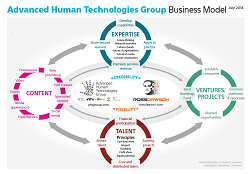Keynote Speaker
Keynote Speaker
Books
In the media
Business Model
Could online lobbying be the future of government?
By Ross Dawson
Recently I spoke on the potential of crowdsourcing at the EngageTech conference, an event focusing on how government can best use technology to engage with community and citizens. One of the very interesting conversations that emerged at the event was on how interested and informed citizens are on government decisions.
It’s a truism that representative democracy is not very democratic.
One of the primary reasons that we elect representatives is that the vast majority of people do not have the interest or time to have informed opinions on the many things on which government must decide and act. However the rise of a hyper-connected world has fundamentally changed the relationship between citizens and government.
People have the opportunity as never before to be well-informed on the issues that interest them. The newspapers and TV stations that supposedly informed us pre-Internet were never better than adequate, and very rarely even that. We are better informed than ever before (and happy to debate it with anyone who disagrees).
Moreover, we now can have our opinions or input heard in a way that was never possible before. Switzerland, which has more referenda than any other country, is in the vanguard in e-voting, allowing easy remote participation in government decision-making. Of course the challenge is that citizens’ input to any particular decision will be swayed by the degree of participation of advocates of different approaches.
But this is certainly not sufficient reason to discard this kind of participation. Arguably all elections are subject to the same issues: degrees of participation in voting, extent of knowledge about the issues at hand, and influence by partisans. Is the fact that the proponents of a particular view can muster widespread online – or offline – engagement sufficient reason for their stance to become policy?
As a straw man, I suggest that it is entirely viable for public policy to be shaped – issue by issue – by online lobbying and engagement with voters and citizens. Yes there would be potential problems in this system, but these would not necessarily be worse than the current very broken system we have in most “democracies” around the world.
Let us imagine a world in which all major issues are open to debate, discussion, and lobbying in the public sphere, leading to participatory decision-making. For all the potential flaws of this system, it could well be better than what we have today.
 |
Contact
Energize your event with leading futurist and inspirational speaker Ross Dawson’s compelling and inspirational presentations that leave audiences stimulated. Contact Ross Dawson’s office today to discuss the precise keynote topic and title that will best meet your requirements. |






